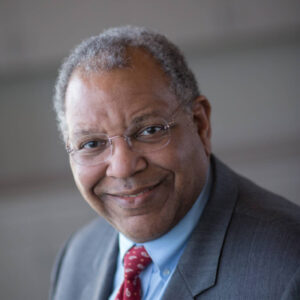This week came word of the passing of Franklyn Prendergast, professor emeritus of the Mayo College of Medicine and Science and director emeritus of the Mayo Clinic Comprehensive Cancer Center.
Dr. Prendergast, who died on Oct. 12 at age 78, was a force in science and medicine and a trailblazer in civil rights. In 1995, just 28 years ago, he became the first Black director of an NCI-designated Comprehensive Cancer Center.


Prendergast was a role model who encouraged young men and women to pursue careers in science and medicine at mainstream institutions. When asked by a young Black physician about it being unusual for a Jamaican to settle in Rochester, MN, he interjected humor, saying, “It’s easy once you get used to the fact that they put white cream sauces on everything.”
Prendergast laughed, further reflecting on the Nordic cuisine, predominantly Nordic population, and snow-covered landscape.
He then added: “I am talking about more than just food.”
Dr. Prendergast and a very small number of peers literally opened doors, creating opportunities for minorities in medicine. One should not underestimate the importance of men and women like Prendergast, who demonstrated what Black people and minorities could accomplish with utmost competence. His opening of minds and widespread acceptance created opportunities for others.
Today, several Black individuals hold high positions in oncology, and Black directors run five of the 56 NCI-Designated Comprehensive Cancer Centers:
- Rob Winn, MD, Virginia Commonwealth University Massey Cancer Center
- Kunle Odunsi, MD, PhD, University of Chicago Cancer Center
- Selwyn Vickers, MD, Memorial Sloan Kettering Cancer Center
- John Carpten, PhD, City of Hope Comprehensive Cancer Center
- Taofeek K. Owonikoko, MD, PhD, University of Maryland Greenbaum Comprehensive Cancer Center
Franklyn Prendergast graduated with honors from the medical school at the University of the West Indies in 1968. He attended Lincoln College, University of Oxford, as a Rhodes Scholar. He commenced a residency in internal medicine at the Mayo Clinic in 1971, and then became a graduate student in the joint Mayo Graduate School / University of Minnesota program, graduating with a PhD in 1977.
Dr. Prendergast joined the faculty of the Department of Pharmacology at the Mayo Graduate School and rose through the ranks. He became professor of pharmacology, biochemistry and molecular biology in 1986. That same year, he was named the Edmond and Marion Guggenheim Professor.


Dr. Prendergast became chair of the Department of Biochemistry and Molecular Biology in 1987 and director for research at Mayo Clinic in 1989. In 1990, he was appointed to the Mayo Board of Governors and the Mayo Foundation Board of Trustees. He served on these boards until 2009.
It was from 1995 to 2006 that he was director of the Mayo Clinic Comprehensive Cancer Center. He organized and ran the Mayo Center for Individualized Medicine from 2006 until his retirement in 2014. Additionally, he served on the Board of Directors of Eli Lilly and the biotech companies Neubase Therapeutics, Cyclica, Morphimmune, and Medbio.
Throughout his academic career, Dr. Prendergast participated in numerous NIH review groups and advisory committees. He is especially remembered as a member of the NCI Board of Scientific Advisors and the National Cancer Advisory Board.
He has been awarded honorary doctorates from Purdue University and the University of the West Indies, Distinguished Alumni awards from the University of the West Indies, University of Minnesota, and the Mayo Clinic.
Otis W. Brawley, MD, is the Bloomberg Distinguished Professor of Oncology and Epidemiology at Johns Hopkins University.
Robert A. Winn, MD, is the director and Lipman Chair in Oncology at VCU Massey Cancer Center, senior associate dean for cancer innovation at the VCU School of Medicine, and professor in the Division of Pulmonary Disease and Critical Care Medicine at Virginia Commonwealth University.







